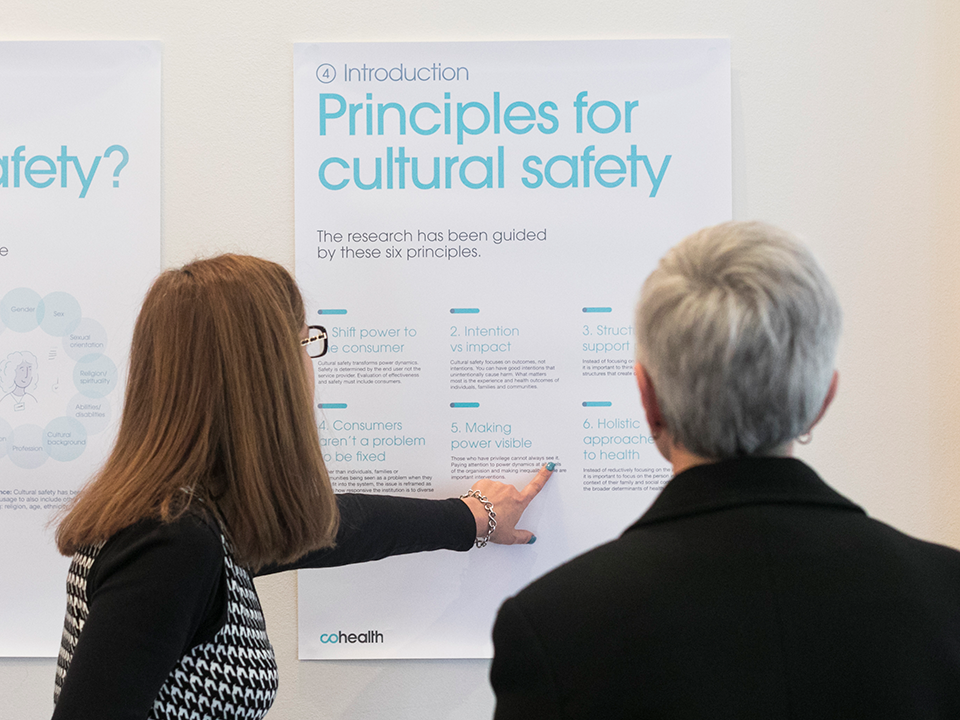Cultural competence
What does cultural competence mean at Paper Giant?
Cultural competence is a set of behaviours, attitudes, and policies that enable people to work safely and respectfully in cross-cultural situations. We are committed to continually exploring what cultural competence means for our team and the organisation as a whole.


Photos of a cultural safety workshop run together with Co-Health
Photos of a cultural safety workshop run together with Co-Health
Cultural competence is reflective.
Cultural competence means acknowledging yourself (and your group) as a bearer of culture, where the culturally informed assumptions and behaviours you bring to any given situation may be beneficial or harmful to others. It is also important to understand and acknowledge that structural inequalities and power differences create barriers for participation in many different situations.
For our work, this means identifying our own assumptions, and then working to understand and challenge the power dynamics inherent to any interaction we have–with each other, with our clients, and with the communities we work with.
Cultural competence is intersectional.
To work towards cultural competence means taking an expansive approach to culture and the intersecting axes of identity—encompassing race, gender, sexual orientation, socio-economic background, disability, lived experience of addiction, mental or physical ill-health, education, age, generational difference and so on. This does not mean simply learning about “others”. Rather, the onus is on us to acknowledge our individual and collective positions in the world within these axes of identity and power, and how this can shape the interactions we have with others.
As practitioners, this means being open and honest about our individual and collective privileges and experiences, and the experiences of others.
Cultural competence is about impact, not intention.
Working in a culturally competent way means that we must proactively consider, challenge, ask, and reflect on situations and intentions we perceive as neutral or positive—as they may not be for everybody.
This means evaluating, reflecting on, and improving upon our efforts, and challenging the histories, ideologies and assumptions that shape our understanding of ‘good’ work.
Cultural competence is ongoing.
There is more to cultural competence than achieving a goal or ticking a box. It is both a way of working that requires constant reflection, and something to work towards that requires ongoing reassessment.
For the studio, this means continuing to focus on cultural competence, and to make space for whole-of-team discussions, learning opportunities and reflection.
Cultural competence is one part of the picture.
Cultural competence is supported by cultural awareness—an understanding of other cultures, knowledges and identities, and the histories of interaction between them. Cultural competence is a pathway to cultural safety—a space of safety for all people to be themselves without assault, challenge or denial to their identity.
At Paper Giant, we are committed to working on our cultural competence across rituals and team activities, including dedicated professional development and a fortnightly cultural competence practice group.
As part of this ongoing cultural competence work, we have a diversity and inclusion commitment statement which speaks to what we expect from our founders, team, contractors, clients, and the people we engage with.
